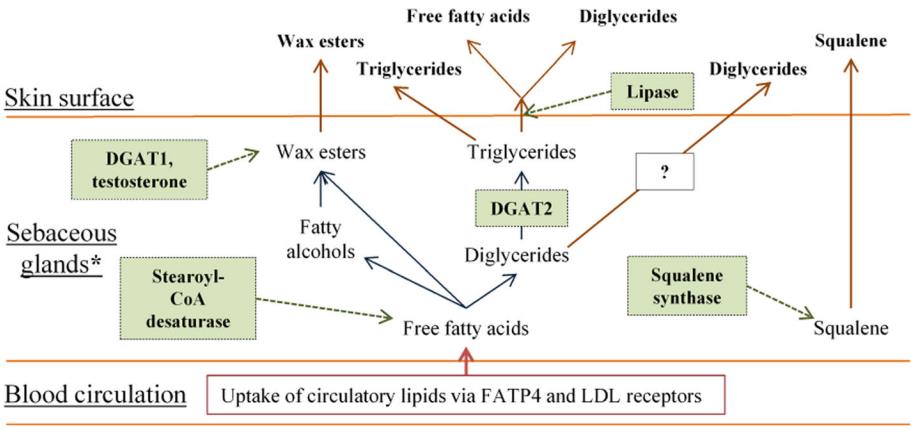With the advantage of a professional team and rich experience, Creative Biolabs launches induced pluripotent stem cells (iPSC)-derived human sebocyte-based lipoprotein lipase (LPL) expression assay service to help you succeed in sebum-related disease research and achieve breakthroughs in drug development.
Lipoprotein lipase (LPL) is an enzyme primarily known for its role in lipid metabolism, where it catalyzes the hydrolysis of triglycerides in circulating lipoproteins, and releases free fatty acids. Its function is crucial in regulating lipid levels in the blood and peripheral tissues. LPL is primarily found on the surface of capillary endothelial cells. Sebaceous glands can express LPL, which can bind and degrade serum lipoproteins into fatty acids. Sebocytes, the specialized cells within sebaceous glands, utilize these fatty acids to synthesize sebum. LPL activity in sebaceous glands influences the composition and quantity of lipids in sebum, dysregulation of LPL expression or activity can lead to altered sebum production, potentially impacting skin health and contributing to skin disorders.
 Fig.1 Synthesis of skin surface lipids of sebaceous origin.1
Fig.1 Synthesis of skin surface lipids of sebaceous origin.1
The LPL expression assay based on iPSC-derived human sebocytes is a valuable tool for studying the regulation of LPL in the context of sebum production and potential drug development for skin conditions. This assay involves several key steps:
Sebum hypersecretion is a key pathogenesis of acne. Study finds that Cutibacterium acnes generates lipases to break down sebum lipids, offering energy to the bacteria and skin with hydration. LPL expression assay based on iPSC-derived human sebocytes takes advantage of a readily available and reliable in vitro model, providing valuable insights into the regulation of LPL activity and sebum production by various compounds. By assessing LPL expression levels in the above assay, we can identify potential drug targets and compounds that modulate sebum production, offering innovative therapeutic strategies for managing skin conditions such as acne and hyper/hyposeborrhea. The assay is also a key tool for understanding the molecular mechanisms underlying these conditions and facilitating the development of effective treatments to address sebum-related diseases.
As a leading service provider, Creative Biolabs has established multiple platforms for the development of stem cell therapies. We can provide a variety of cell customization services derived from iPSC, as well as disease-related assays based on iPSC models. Welcome to contact us for more information.
Reference
For Research Use Only. Not For Clinical Use.